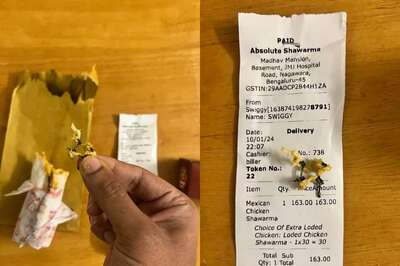
views
Finance Minister Nirmala Sitharaman, in the Union Budget 2023-24, announced an increase in the income tax rebate limit. Now, taxpayers with up to Rs 7 lakh annual income will not be required to pay any tax. Earlier, those who earned up to Rs 5 lakh annually were not liable to pay income tax in both the old and new tax regimes. The rebate limit has been now increased to Rs 7 lakh, but only those who opt for the new tax regime.
The tax slabs in the new income tax regime have also been reworked in Budget 2023. The Finance Minister has raised the tax exemption limit by Rs 50,000 to Rs 3 lakh while the number of slabs has been reduced to five.
Now, in the new tax regime, income between 0 to Rs 3 lakh will not be taxed. Earlier, income up to Rs 2.5 lakh was not subject to any tax. Income between Rs 3 lakh and Rs 6 lakh will be taxed at 5%, between Rs 9 lakh and Rs 12 lakh at 15%, and the tax rate for income between Rs 12 and Rs 15 is 20%. Income exceeding Rs 15 lakh will not be taxed at 30%.
Meanwhile, the income tax rates and tax slabs have not been changed for the old tax regime.
The Finance Minister also announced that the new tax regime is the default tax regime now and the old tax regime will be available only on request.
Under Section 87A of the Income Tax Act, the tax rebate was limited to Rs 12,500 for those with an income of Rs 5 lakh. After a taxpayer, who has income up to Rs 5 lakh, claims all deductions under Chapter VIA, his effective net tax liability used to be zero in the old tax regime.
Now, if a taxpayer with Rs 7 lakh annual income opts for the new tax regime, then he will be able to avail of a rebate of Rs 25,000. This means that such taxpayers will not have to pay any income tax.
Read all the Latest Business News and Budget Live Updates here




















Comments
0 comment